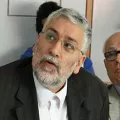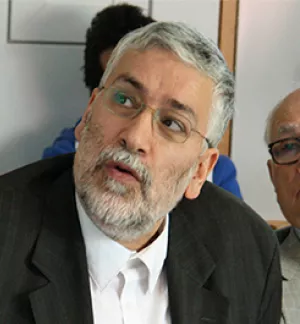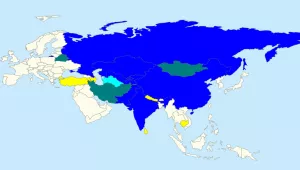In the wake of escalating tensions between United States and Iran, touching on both the nuclear standoff and the situation in Iraq, the two sides need to take tangible steps aimed at reducing the escalating tensions between them, and the sooner the better. But those steps, such as confidence-building measures in the Persian Gulf that would avert an accidental war between the U.S. and Iranian navies, must be anchored in a better understanding of each side's intentions and interests — both in Iraq, Afghanistan and the broader region.
Unfortunately, today's climate in U.S.-Iran relations is fogged by poisoned rhetoric, accusations and counter-accusations, labeling and misperceptions. One such misperception is that the United States and Iran operate at complete cross-purposes in Iraq and today's Iraq represents a theater of "zero-sum" conflict between Tehran and Washington.
Yet, a clue that the picture is, indeed, much more complex and there are coinciding interests between the two nations was given by Iran's Ali Larijani, the head of powerful Supreme National Security Council, in his recent interview with the Arabic network, al-Jazeera, when he stated that Iran is not in favor of an immediate withdrawal of U.S. forces from Iraq. This echoes an earlier statement by Iran's Deputy Foreign Minister, Abbas Araghchi, in his recent interview with the Financial Times, stating that Iran favors an orderly, gradual withdrawal of foreign forces from Iraq.
Such news from Iran may be surprising to the hawkish U.S. politicians and media pundits, who portray Iran as America's mortal enemy. Yet this is not so, when seen from the prism of Iran's national security interests, and especially given Iran's concerns about conflict spillover, refugees, and the like, that would result from a chaotic U.S. withdrawal from Iraq. In fact, Iran's willingness to hold rounds of direct dialogue with the United States on Iraq's security, ending 27 years of diplomatic non-communication, reflects those shared interests.
Iran has given generous economic assistance to Baghdad's government and has a burgeoning trade with Iraq that exceeded $2 billion last year. Iran has a vested interest in a politically and economically stable unified Iraq, and is opposed to Iraq's disintegration.
Similarly in Afghanistan, where the United States and Iran cooperated in bringing about the downfall of the Taliban in 2001, the government of Kabul has adamantly rejected White House allegations of Iranian support for the Taliban. Iran is concerned about the resurgence of the Taliban insurgency, backed by al Qaeda, as well as about the growing drug traffic from Afghanistan, which takes the lives of hundreds of Iranian law enforcement officials each year.
At the same time, Iran is worried by the United States' post-9/11 encirclement of Iran, categorization of Iran as part of an "axis of evil," and, more recently, the branding of Iran as a new cold-war enemy that precludes the politics of "engagement" recommended by the Iraq Study Group. From Iran's vantage point, the U.S. military's plan to build a base near the Iran-Iraq border, ostensibly to prevent the flow of arms into Iraq, is a convenient excuse for a long-term U.S. presence in Iraq.
What is needed is continued multilateral talks and diplomacy in order to de-escalate the dangerous crisis over Iran's nuclear program, which has been certified by the International Atomic Energy Agency, after extensive inspection of Iran's facilities, to be devoid of any evidence of military diversion. In light of the steady progress in Iran-IAEA cooperation, the direct dialogue between the United States and Iran on Iraq's security, and Iran's ability to play an even more constructive role in regional stability, the stage is set for a thaw in U.S.-Iran relations. With sufficient political will on both sides, Washington and Tehran can achieve this by adopting concrete confidence-building measures and by imposing a mutually agreed-upon moratorium on demonizing each other.
A start would be for the United States to release the five Iranian diplomats seized by U.S. forces in the Kurdish city of Irbil. Another would be to explore the idea of an "incidents at sea agreement," whereby the chances of accidental maritime warfare between United States and Iran would be minimized.
What's necessary is not the "grand bargain," as called for by some American pundits, but concrete baby steps aimed at incremental improvement of the U.S.-Iran climate — something that is feasible, and yet sadly lacking today. Given the potential flash points in the region and the proximity of the U.S. military to Iran, it would be imprudent not to pursue those steps, in the interests of regional and global peace.
Abbas Maleki, a former deputy foreign minister of Iran, is a visiting scholar at Harvard University's Kennedy School of Government.
Maleki, Abbas. “U.S., Iran Need to Build Confidence.” San Francisco Chronicle, September 21, 2007




